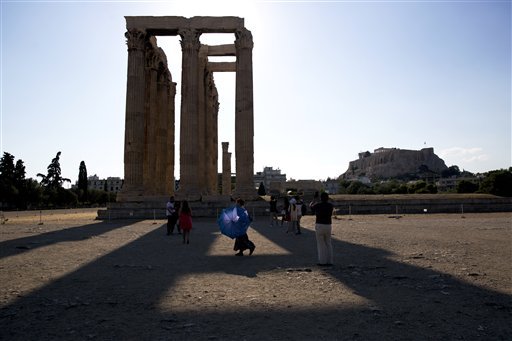Greek PM Tsipras quits and calls early election
Tsipras submitted his resignation after facing the largest rebellion yet within his own Syriza party when a third of his legislators voted against or abstained from voting on austerity bailout measures required to reach a deal with European creditors.
Tsipras had always been expected to seek early an election in the autumn.
The new party, called Popular Unity, will be headed by former energy minister Panagiotis Lafazanis, the leader of the far-left faction within Syriza that has defied outgoing prime minister Alexis Tsipras’s call to back a third bailout programme.
In a surprise move Thursday, Tsipras tendered his resignation, paving the way for snap elections.
It’s important to note that the Leftist premier is likely to win any new election with polls showing that he commands overwhelming support from the Greek electorate, amid weak opposition parties in the form of the conservative New Democracy and near non-existent Socialist party.
Lafazanis, who was replaced in the July cabinet reshuffle after voting against the agreement Tsipras signed with Greece’s worldwide creditors, leads the defecting MPs who denounce the government’s U-turn on initial pledges to tear up bailouts and put an end to austerity policies.
“If the Greeks don’t implement the reforms they will no longer receive a euro of aid”. The government on Thursday cleared 3.4 billion euros owed to the European Central Bank, the ECB confirmed, marking an urgently needed truce in a row that saw Greek banks shuttered, the economy battered and almost saw Greece thrown out of the eurozone.
“We respect Mr. Tsipras decision, but I can’t help feeling it’s a bit cynical timing to do it immediately after the first disbursement”, Kažimír said in a tweet. If Mr Meimarakis fails to form a government, the chance will be given to the new party, analysts say, and then the far-right Golden Dawn party.
It is possible that Mr Tsipras could get a more favourable result in a general election that is held before voters feel the impact of the spending cuts and tax hikes which Greece must implement as part of the bailout deal.
The Syriza leader is hoping to strengthen his hold on power if elections take place.
He had to agree to painful state sector cuts, including far-reaching pension reforms, in exchange for the bailout – and keeping Greece in the eurozone.
That could delay the first review of the country’s reforms progress, and in turn delay talks on easing the terms of Greece’s debt, which both Athens and the global Monetary Fund, which was a major participant in Greece’s previous two bailouts, insist is essential.












